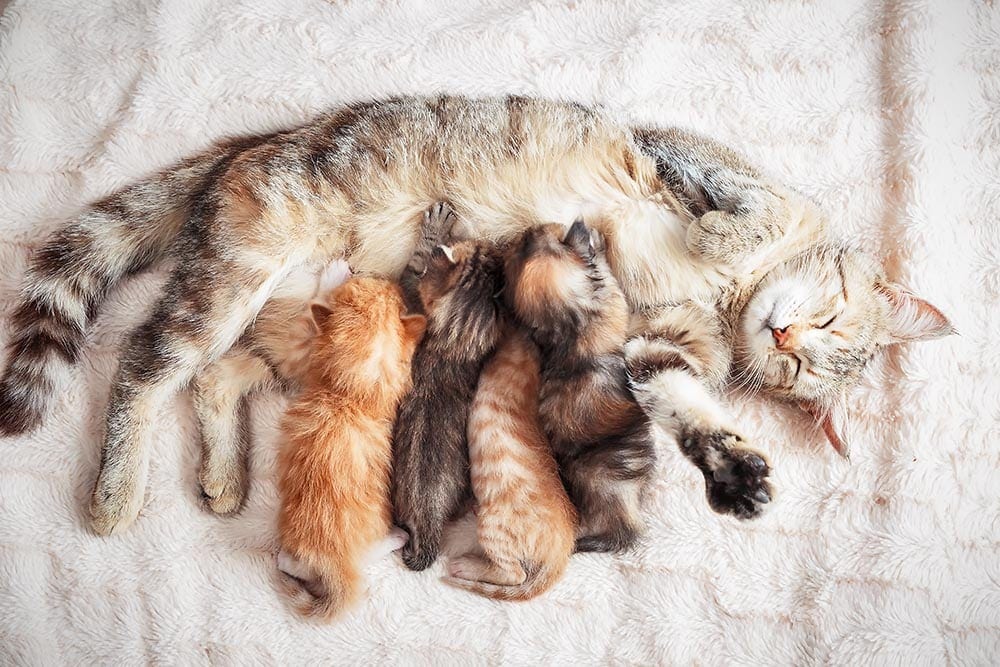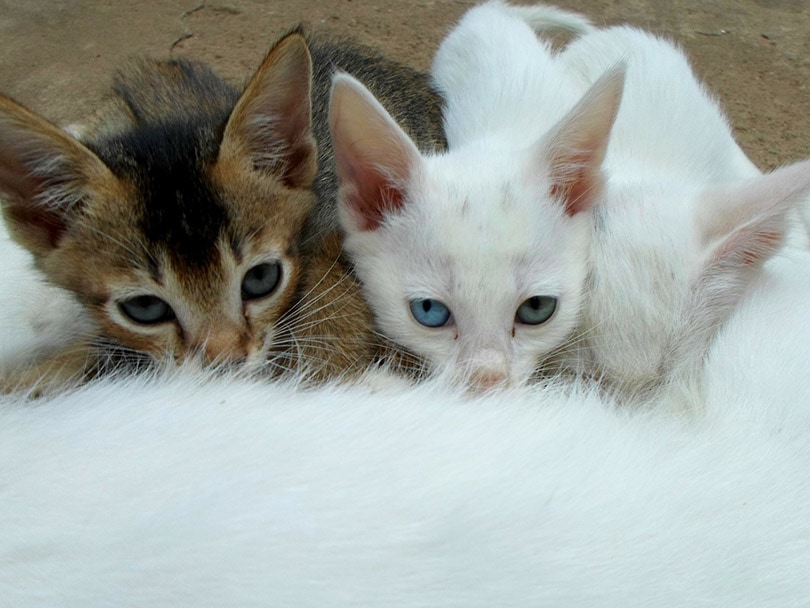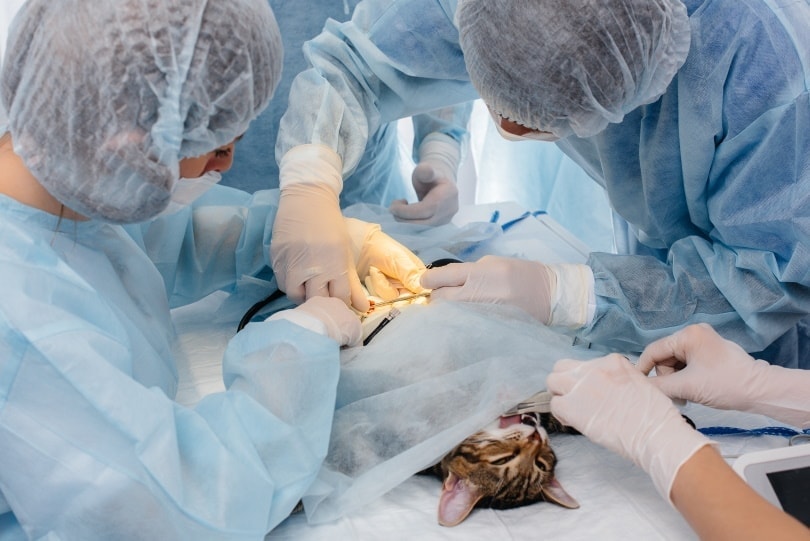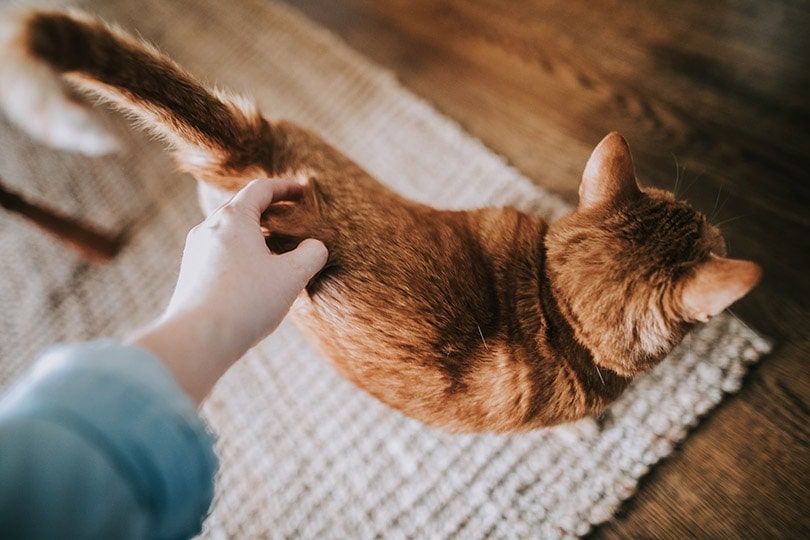When Can I Get My Cat Spayed After Having Kittens? Vet-Reviewed Facts & FAQ

Updated on

There’s little more exciting than having a new litter of kittens at home! Watching your cat become a mom and watching new little kittens grow so rapidly is a truly rewarding experience. Of course, you likely don’t want this to happen again in the near future, or at all if you’re not a breeder! Spaying your cat will prevent her from getting pregnant again, but how soon after having kittens is the procedure safe?
Typically, you can get your female spayed after she’s done weaning her kittens, which is usually around 6–8 weeks, but there are some important factors to consider. Read on below to find out more!
When Is the Right Time to Spay Your Cat After Having Kittens?
This depends on your cat and how quickly she weans her kittens. This could be anywhere from as early as 4 weeks or up to 8 weeks or more in some cases. Because your cat is nursing her kittens almost around the clock, it’s not a good idea to get her spayed before they’ve stopped breastfeeding. This can make the surgery more difficult and prone to complications due to her enlarged mammary glands, and many vets are unlikely to want to perform the operation until her kittens are fully weaned anyway.

Can Cats Get Pregnant While Nursing?
It’s a common myth that cats cannot get pregnant while they’re nursing kittens, but this is simply not true. While it’s highly unlikely, it’s still possible. Some cats will have their first heat cycle after pregnancy as soon as 3–4 weeks after giving birth, so they may be in heat even while still nursing. While she’s unlikely to be outside roaming or even want to breed at this time, if there’s a male around, pregnancy is unlikely but certainly possible.
Why Should You Spay Your Cat?
Unless you’re a registered breeder or have a purebred cat, there is no good reason to allow your female to keep having kittens. There are thousands, if not hundreds of thousands of kittens and cats in adoption agencies throughout the United States, mostly due to cats having unexpected or unwanted litters. Over 40 million households in the US own at least one cat, many of which are adopted from shelters.
Generally, people tend to prefer adopting kittens rather than adults, leaving adult cats at the risk of being euthanized if they’re not adopted. Once your cat has had a litter of her own, or preferably before unless you have homes for the kittens, spaying is the best course of action. Kittens can become sexually mature as young as 4–6 months old, and it’s dangerous for a female to fall pregnant at such a young age. Most experts recommend kittens get spayed from 4 or 5 months old to reduce the chance of pregnancy.
Spaying and neutering is an important part of pet care, but it's not the only health expense your pet is likely to incur. A personalized pet insurance plan from a company like Lemonade can help you manage costs and care for your pet at the same time.

Final Thoughts
You can get your cat spayed roughly 4–8 weeks after having kittens, but it really depends on your cat. She should have weaned her kittens completely, as spaying a female that is still nursing can be dangerous. There are many cats and kittens in need of homes in the United States, and unless you’re a breeder, you don’t want your cat to add to that number.
Featured Image Credit by Rashid Valitov, Shutterstock












